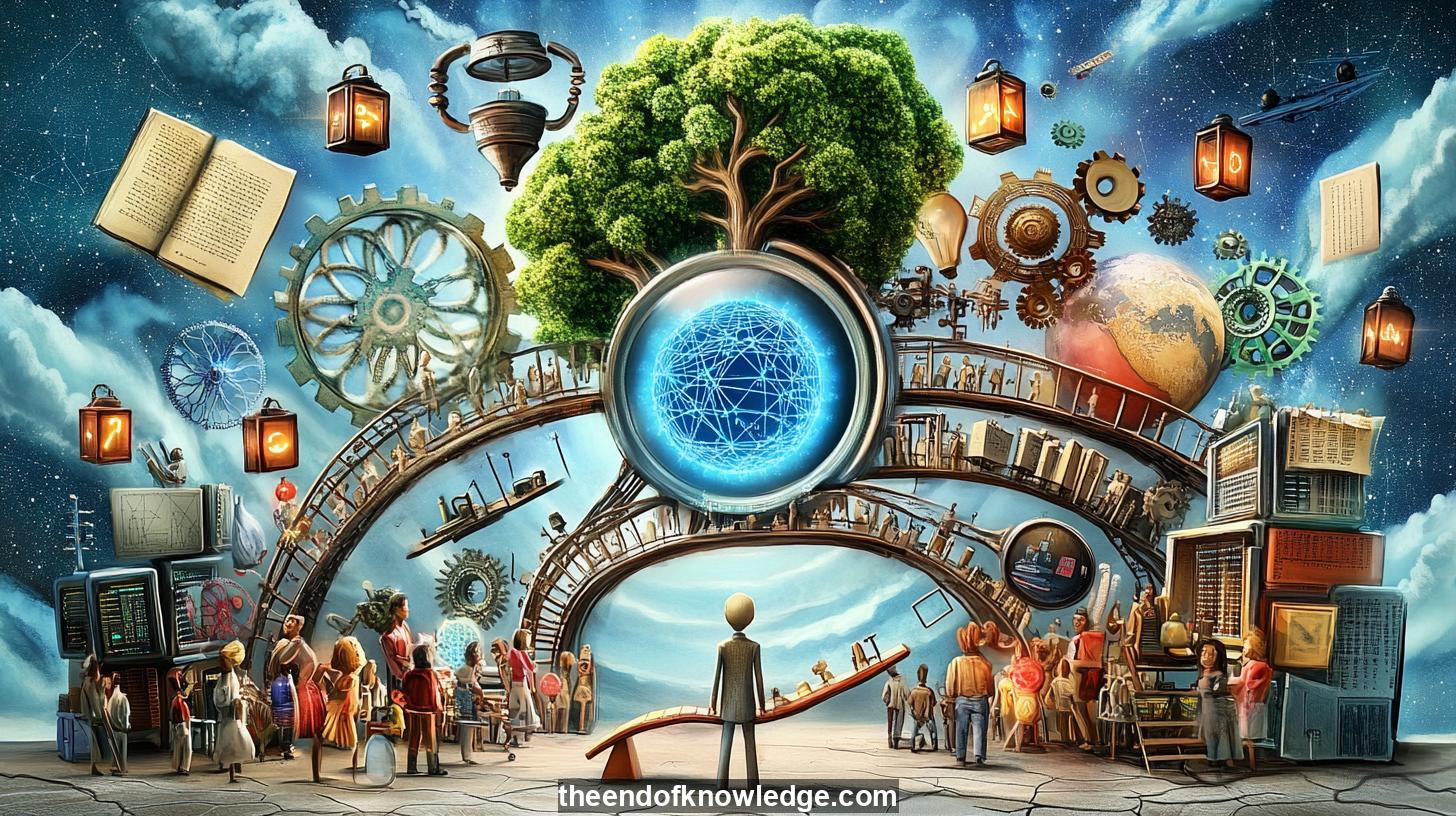 >
>
Concept Graph, Resume & KeyIdeas using DeepSeek R1 :
Resume:
The conversation with Patricia Contreras explores her journey from mathematics and philosophy to science communication, emphasizing the interconnectedness of science, society, and philosophy. She discusses the role of philosophy in bridging theoretical science with reality, the societal impact of quantum mechanics and artificial intelligence, and the challenges of science communication in a world influenced by disinformation. Contreras also reflects on the need for ethical considerations in scientific advancements and the importance of fostering curiosity and critical thinking in education. She highlights the potential of decentralized technologies like blockchain and the importance of humility in scientific modeling, acknowledging the limits of mathematical representations of reality. The discussion underscores the dynamic interplay between technological progress, societal values, and individual responsibility in shaping the future of science and technology.30 Key Ideas:
1.- Patricia Contreras transitioned from mathematics and philosophy to science communication, emphasizing the need for bridging science and society.
2.- She believes philosophy connects scientific experiments to reality, providing a humanistic perspective on technology.
3.- Quantum mechanics challenges classical notions of locality and reality, with phenomena like entanglement sparking debates on non-locality.
4.- Artificial intelligence relies heavily on mathematical models but raises ethical concerns about bias and societal impact.
5.- Contreras advocates for ethical debates in science to ensure technological advancements align with human values.
6.- She highlights the importance of science communication in making complex concepts accessible to the public.
7.- Quantum computing has the potential to solve problems beyond classical computers, though its applications are still limited.
8.- The integration of quantum mechanics and AI could revolutionize computing and problem-solving.
9.- Contreras discusses the societal context of science, noting how funding and priorities are influenced by economic and political factors.
10.- She emphasizes the need for humility in scientific modeling, recognizing the limits of mathematical representations of reality.
11.- Education should foster curiosity and critical thinking, connecting science to everyday life to inspire future generations.
12.- Contreras reflects on the underrepresentation of women in STEM fields and the need for greater diversity in science.
13.- She critiques the glorification of mathematics and physics over other disciplines, advocating for interdisciplinary approaches.
14.- The conversation touches on the potential of decentralized technologies like blockchain to transform society.
15.- Contreras stresses the importance of ethical considerations in scientific advancements to avoid harm to society.
16.- She discusses the challenges of science communication in a world increasingly influenced by disinformation.
17.- The role of philosophy in science is to question assumptions and provide a broader context for technological developments.
18.- Contreras believes quantum mechanics and AI challenge traditional understandings of reality and consciousness.
19.- She advocates for a balanced approach to technological progress, considering both its potential and risks.
20.- The discussion highlights the interplay between technological innovation and societal values in shaping the future.
21.- Contreras emphasizes the need for public engagement with science to ensure it serves the common good.
22.- She reflects on the limitations of scientific models in capturing the full complexity of reality.
23.- The conversation underscores the importance of diversity in scientific perspectives to address global challenges.
24.- Contreras discusses the potential of quantum mechanics to revolutionize fields like computing and materials science.
25.- She highlights the need for transparency and accountability in the development and deployment of AI.
26.- The role of science in society is to empower individuals and communities, not just to advance technology.
27.- Contreras believes education should inspire a sense of wonder and curiosity about the world.
28.- She advocates for a more equitable distribution of resources in scientific research and education.
29.- The discussion explores the tension between the commercialization of science and the pursuit of knowledge for its own sake.
30.- Contreras emphasizes the importance of interdisciplinary collaboration in addressing complex global challenges.
Interviews by Plácido Doménech Espí & Guests - Knowledge Vault built byDavid Vivancos 2025